

Humanitarian aid workers like Australian Red Cross delegate JP Miller rely on international humanitarian law for protection when deploying into conflict zones. Right now, in conflicts all over the world, those laws are being violated.
As a specialist nursing delegate with Australian Red Cross, JP Miller has deployed to a variety of challenging settings all over the world. He’s worked with Red Cross in South Sudan, Bangladesh, Syria and Myanmar, helping local hospital teams to care for sick and wounded patients during times of conflict and disaster. But no setting has been quite as challenging, complex or confronting as his deployments to hospitals in Rafah, Gaza, over the past 18 months.
“Gaza was like nothing I had seen before,” shares JP, who returned from his third assignment to Rafah, in the southern Gaza Strip, in May 2025.
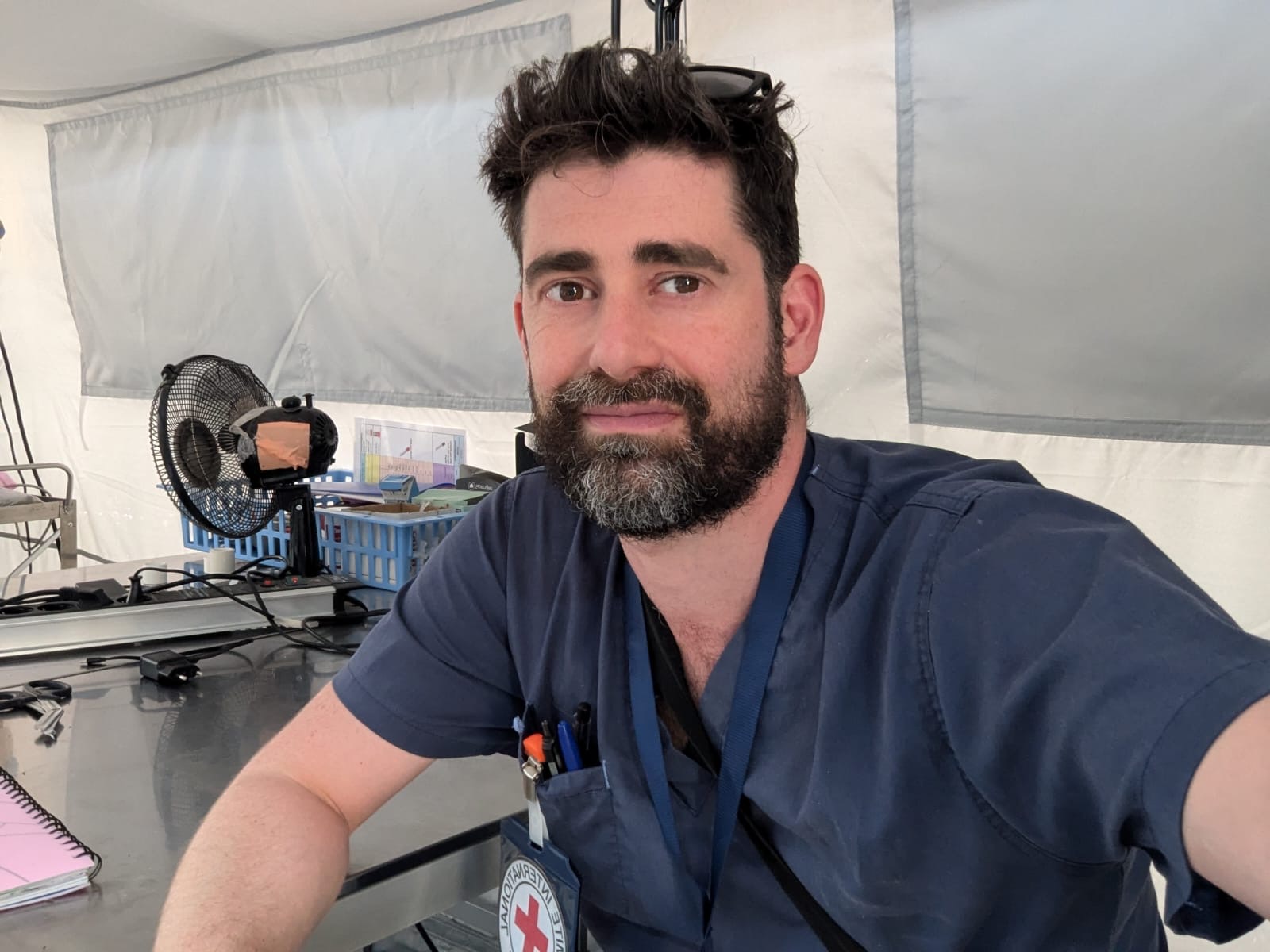
“The lack of food, clean water and basic medical supplies coming across the border means that hospitals and healthcare workers are operating without what they normally require. The health system in Gaza is falling apart right now.”
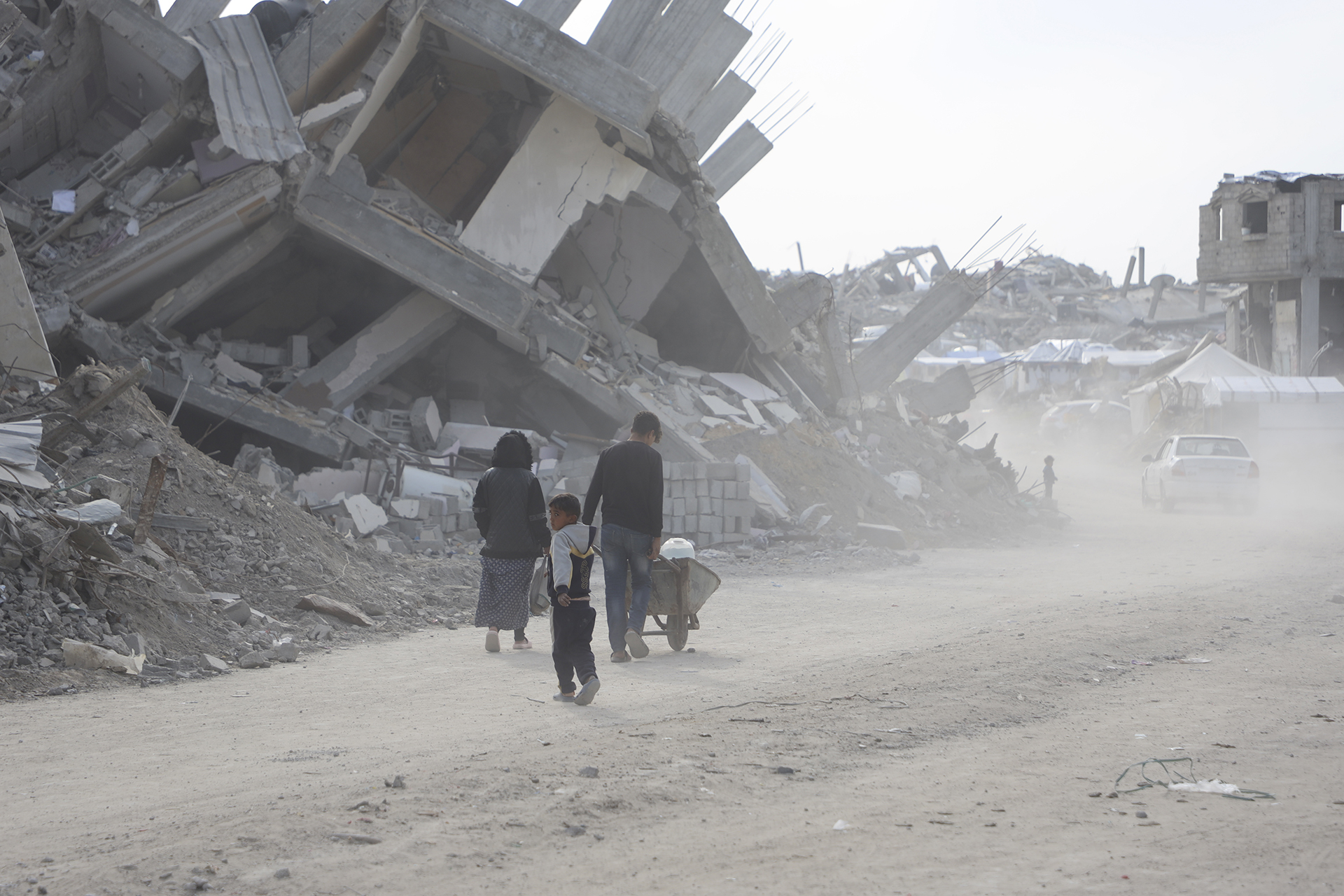
He recalls one young man who was rushed into the ward with shrapnel wounds to his entire body, after he was caught in one such incident. “He had collapsed lungs, multiple injuries to his stomach, a fractured hand and leg. It was an extremely critical case,” says JP. “He was rushed into the operating room and remarkably, he survived.” Following the operation, the young man needed intensive care, yet the field hospital doesn’t contain an intensive care unit, nor were there any ICU beds free at hospitals nearby. “We nursed him around the clock until a bed became available nearby.” After a week in ICU, the man was well enough to return to the field hospital to be cared for.
"He was still there when I left, but he was doing well. Despite everything, he had a great smile."
Australian Red Cross is one of 191 Red Cross and Red Crescent National Societies, all working together as part of the world’s largest humanitarian movement. Since 1915, we have deployed Australian humanitarian aid workers to conflict and disaster zones all over the world, where their skills and knowledge are needed most. While on the ground, delegates like JP assist local teams with response efforts – many of the Palestinian doctors and nurses JP worked with in the hospital had lost their own homes and family members in the war and were living out of makeshift tents. “Yet they continued to turn up,” he says. “They are incredible.”
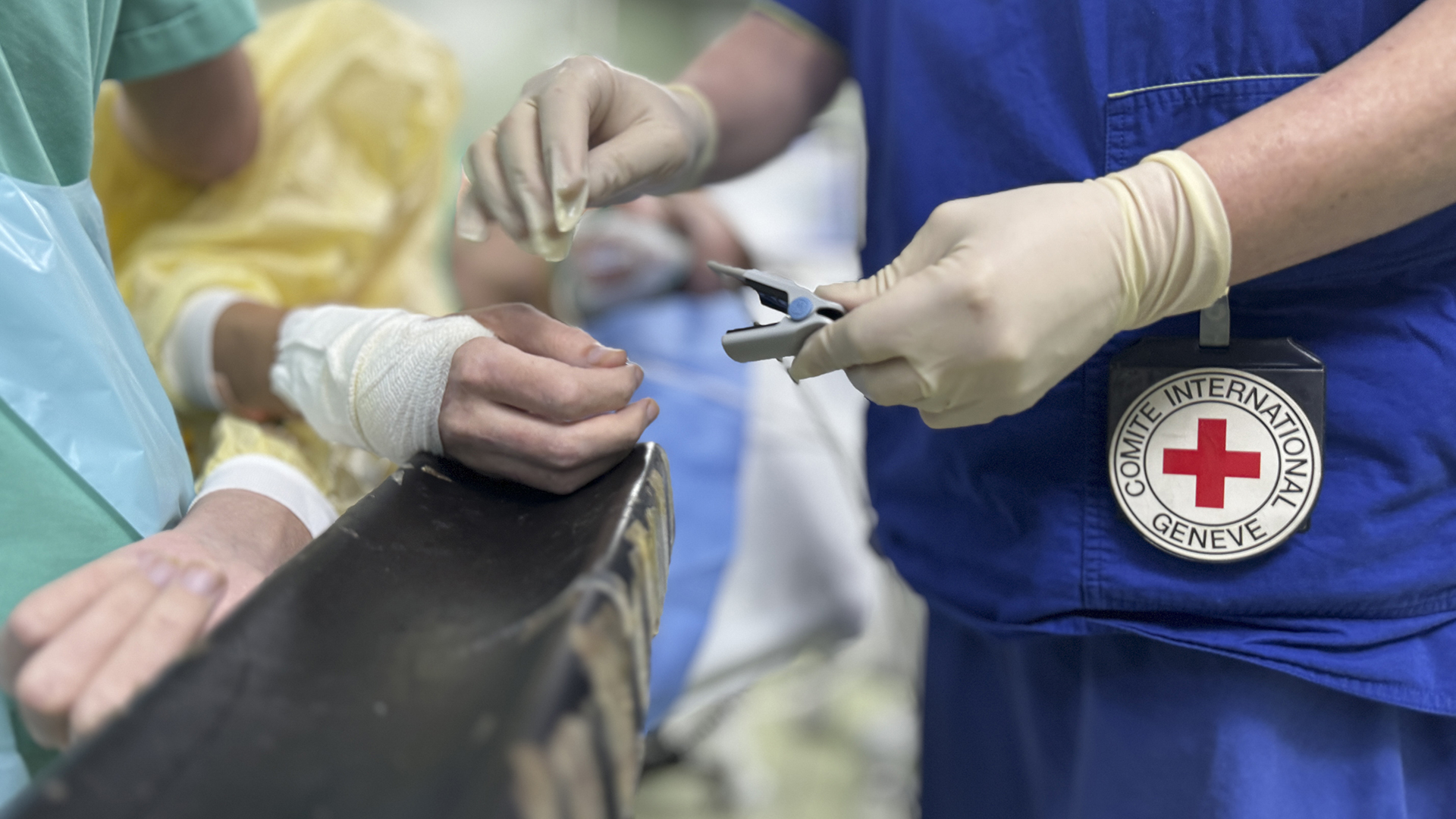
It’s because of Red Cross’ fundamental principles – in particular humanity, neutrality, impartiality and independence – and the protection granted to aid workers under international humanitarian law, that Australian Red Cross delegates can reach and support people in even the toughest conflict zones.
“Our fundamental principles help people to have confidence and trust in the services we provide,” says JP.
"The presence of Red Cross in places like Gaza brings a sense of security to patients and staff, at least at the hospital, in a time of great uncertainty. Being able to help people feel safer when it is dangerous is incredibly valuable. Our attention is on humanitarian needs and protection."
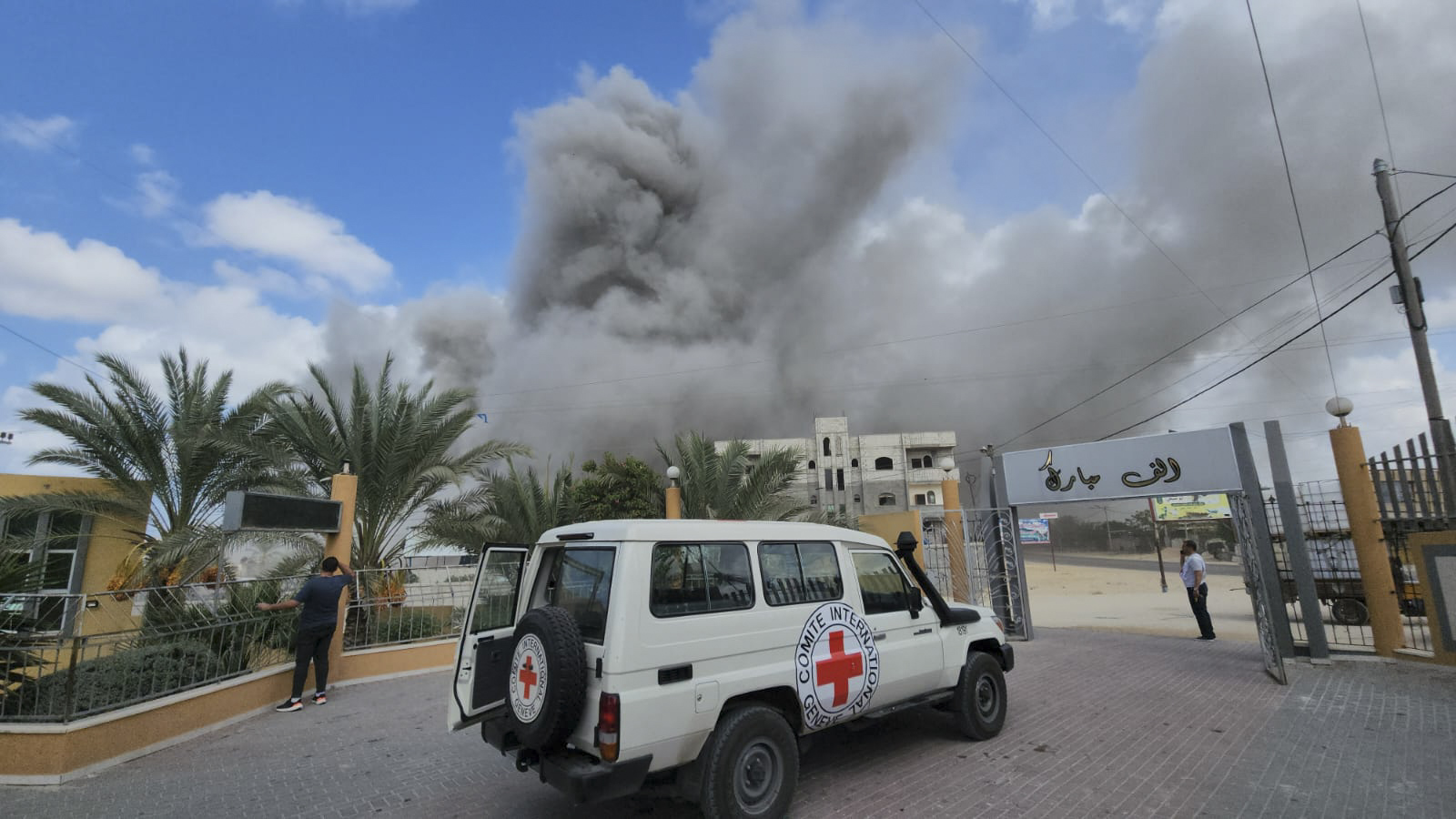
Also known as the laws of war, IHL is a set of rules that strive to limit the suffering and damage caused by conflict while protecting those who aren’t taking part in the fight.
Every country in the world has agreed to the cornerstones of IHL – the four Geneva Conventions of 1949. However, as the President of the International Committee of the Red Cross (ICRC) Mirjana Spoljaric recently observed: “Today, violations that were once considered abhorrent have disturbingly become normalised in conflicts around the world.”
“We must not become numb to that fact, or we risk sleepwalking into a world where the barriers that once restrained the brutalities of war are removed,” she told the UN Human Rights Council in February 2025. “The scale of suffering we witness is not inevitable. It is the direct result of the dismissive interpretations of international humanitarian law.”
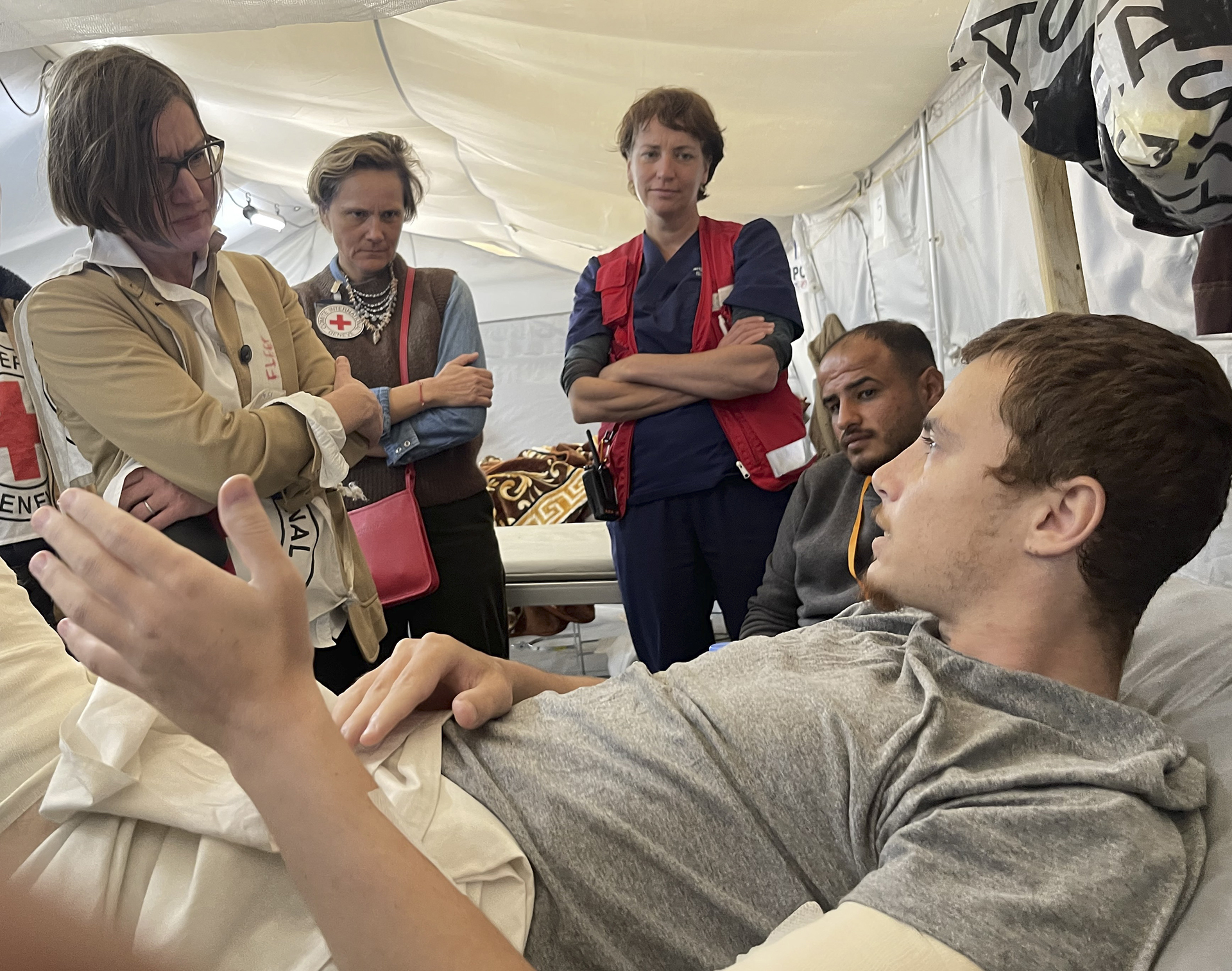
On the ground in Gaza, JP has seen what happens when the laws of war aren’t respected. “When I deploy into a context like Gaza, I typically garner a lot of reassurance from the protection granted to healthcare workers and hospitals under international humanitarian law. I guess the scary thing about Gaza – and many other places around the world at the moment – is that we're seeing a breakdown of that protection, and a breakdown of respect for IHL. We're seeing attacks on aid workers, attacks on medical facilities, and we're seeing the weaponisation of aid.”
On JP’s last deployment to Gaza, his local colleagues from the Palestine Red Crescent Society (PRCS) expressed concerns about what would happen if the situation became too dangerous for international humanitarian aid workers to remain. “When I was there, an ICRC premises was hit within 300 meters from the hospital. Thankfully, no one was injured, but this was a building that was clearly marked and identified as Red Cross. It was a deconflicted building, and it suffered a hit.
“With that came a very genuine fear from our national colleagues that this was the start of us packing up to go. We reiterated, ‘no, we're planning to be here. The hospital is continuing and we’re here to work with you’. But the hostilities impact our operations, and our ability to get resources and medical supplies – which are often very basic supplies – to the people who need them.”
Still, JP is determined to continue being there, standing alongside local teams on the ground in Gaza as they continue to care for those who have lost everything in the face of war. In August this year, he will return to the Red Cross Field Hospital in Rafah again – despite growing security risks, the importance of the work outweighs any fear he feels.
“It's incredibly rewarding when you see someone that was at death’s door, in their darkest moments, and you can help to get them to that point where they survive. To where they’ve pulled through, and they can go home,” he says.
"We are there to help save lives; we are there to help care for the sick and wounded. People caught in areas of conflict have confidence and trust in the support Red Cross provides."
In the year leading up to July 2025

in fields including nursing, surgery, water, shelter and protection, were deployed internationally.

across the globe have received the help of our delegates, from Ukraine to Syria, Myanmar to South Sudan.

have been treated at the Red Cross Field Hospital in Rafah as of 05 July 2025, with over 6,000 surgeries performed.
Your support is needed more than ever.
Red Cross pays our respects to the Aboriginal and Torres Strait Islander custodians of the country where we work, and to Elders, past, present and emerging.
Learn about our Reconciliation Action Plan and how we can all make reconciliation real.
This website may contain the images, voices or names of people who have passed away.


© Australian Red Cross 2026. ABN 50 169 561 394
